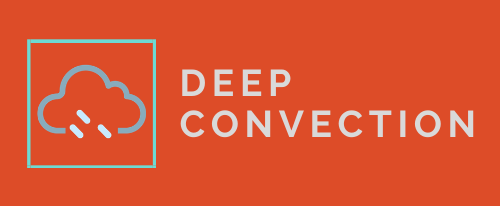
Ousmane Ndiaye’s path to becoming the director of Senegal’s national meteorological service was an unlikely one: Born in Senegal as the youngest of 10 children, he lost his parents at a young age and was raised mostly by one of his sisters. That sister was deeply committed to her little brother’s education, and Ousmane ended up being the first in his family to start high school. But that was just the beginning of an academic career that led him from Senegal to Algeria, and then to the US, where he started a PhD at Columbia University.
At Columbia’s International Research Institute for Climate and Society (IRI), he worked on developing better ways of predicting the west African monsoon a few months ahead of time. These forecasts are important for farmers, who can use them to inform their decisions on the types of crops they want to plant on their fields.
Equipped with a doctorate, Ousmane decided to go back to Senegal rather than to pursue an academic career in the US – not an easy decision, especially since Ousmane already had a family with four children at the time of his graduation. But he had a strong desire to bring his knowledge back home, and to share it with the communities that could directly benefit from it.
Ousmane understood that the value of the forecasts would be limited not just by how accurate they were, but by whether their potential users understood them and valued them, or not. And he also knew that in order for that to happen you have to understand the users and their needs. So when he got back to Senegal he started holding meetings with farmers, to learn how they think and how they work, and to develop practices of forecasting and forecast communication that would work for them. The meetings served a social purpose – they were a way of gaining the farmers’ trust and respect – as well as an educational one, with Ousmane explaining for example the probabilistic nature of forecasts:
In the training, I was trying to explain to them that maybe sometimes our forecast can be wrong, and we have only probabilistic ways to estimate. We are not 100% sure […], it’s just a likelihood, it’s our best guess. I was […] trying to emphasize [that] again and again. There was an older farmer sitting back, and he just raised his hand while we were explaining, and […] he says: “Don’t worry about it. We know that only God knows 100% what will happen. We know your forecast sometimes will go wrong.”
Ousmane’s work was successful, and in 2019 he became the director of Senegal’s national meteorological service, where he is responsible for everything related to weather and climate, and where he continues to use all his resources – his time, research, knowledge and connections – for the important work he’s doing.
The interview with Ousmane Ndiaye was recorded in September 2021. Image credit: Vanessa Meadu (CCAFS)
- Website of Senegal’s national meteorological service, which is part of the country’s National Civil Aviation and Meteorology Agency (ANACIM)
